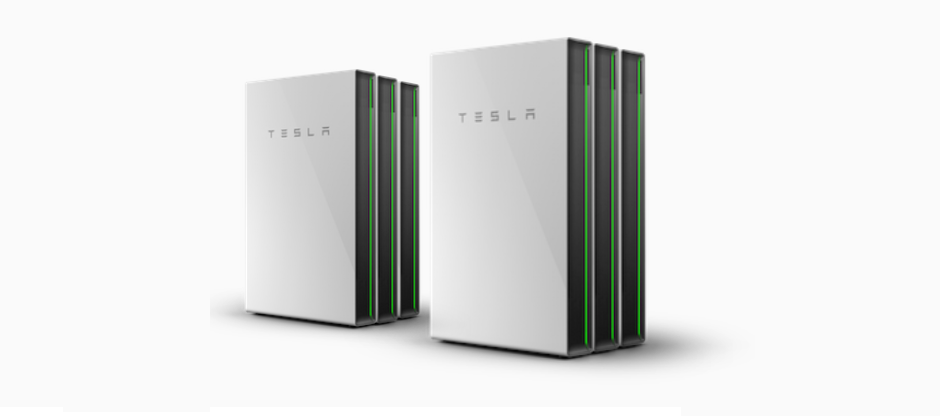
On April 30th, 2015, Tesla announced their new “Powerwall” battery storage product. This is essentially a stack of Tesla’s new low cost batteries packaged in a cabinet for installation at consumers’ homes – either indoor or outdoor. A single cabinet can contain up to 10KWh of storage, which Tesla claims is sufficient to power a typical home for a day. The cost is reported to be around $3500 for each cabinet. Up to nine of these can be combined to provide a total of 90KWh of storage. A DC/AC inverter is needed, which costs an additional $2000.
Tesla is positioning these batteries as a way to 1) save the cost of utility electricity in places where electricity prices vary based upon demand and 2) provide a cost effective way of storing power from consumer solar panels.
In reality, the specifications of the Powerwall point to a far more interesting application, far more in line with the Tesla long-term vision. In this article published in 2011, innovationscommercialization.com , we identified a great opportunity to use battery packs to build “quick charge” stations that would enable electric car owners to recharge their cars in less than 20 minutes at home. The batteries would slowly charge off the grid, then quickly dump power into the cars using the Level-III charge interface that new electric cars have.
This capability would make electric cars practical for a wider range of customers who what their cars available both during the day and evenings.
Although Tesla never mentions this application in their announcement of the Powerwall, the specifications show that this is their long-term vision as well. The Level-III car charging is a 400 volt DC connection – exactly the same as the Powerwall’s ratings. Typical electric cars require between 10kWh and 30kWh of power to fully charge, with Tesla requiring more like 70kWh. Again, these requirements are well matched to the Powerwall.
The $3500 cost for each cabinet is still higher than our vision of the ideal – where the cost of the residential recharge station is no more than 20% of the cost of the car itself. Whereas typical electric cars may be between $20,000 and $30,000, a 20kWh charger would likely cost around $10,000. However, for Tesla owners, even the $25,000 cost of a 60kWh version would be totally acceptable, as long at they have space for the six cabinets.
Having a local high-speed charging capability at the home can change completely the conversation around the practicality of the electric car, and Tesla is bringing us closer than ever!
